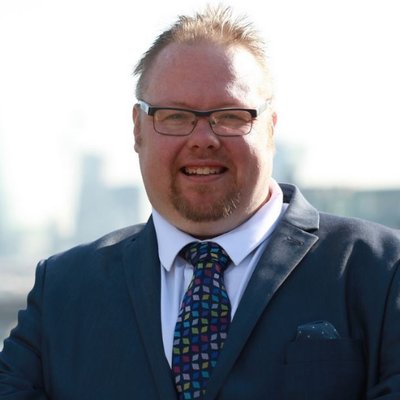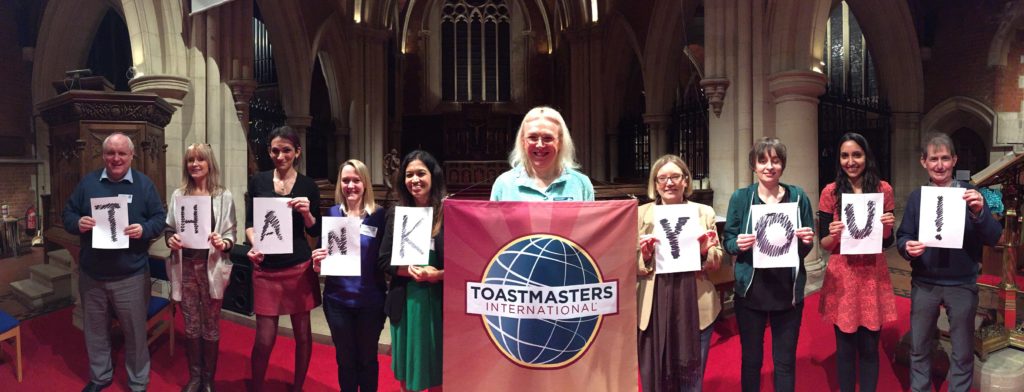By Andy Hessey, Area J4 Director
How many people have signed up for a speech with the words “I’ve got plenty of time” in their heads, only to wake up one morning with drenched in a cold sweat and with clammy palms followed by the horrible realisation that you are hours away from that delivering a speech to a sea of expectant faces when all you have is a rough outline of your project that you created down at the pub 2 weeks ago after ½ bottle of gin and 5 Tequila Slammers?

We’ve all been there and we all know how gut wrenching it is. Panic sets in, followed by the crushing disappointment that it’s not going to be as good as you had thought it was going to be due to the fact you’ve not had chance to give it the finesse and polishing that turns an average speech into one that can win a contest.
So why are we so bad at planning ahead? Is it because as Toastmasters we live in the present with our speeches or is it that we just don’t give enough importance to planning them, just assuming that it will be alright on the night? To be fair, for most Toastmasters, a speech is just another ball to juggle along with family, work and friends etc – but that’s not really a good excuse.
With my Project had on, I know that with just a little forward thinking, the stress really can be taken out of your prep work, so, allow me, if I may, to share my top 3 tips for planning ahead to make sure that it’s not another last-minute.com speech.
- Think bigger than the next speech
If you are only planning one speech at a time then you’re not going to get the most leverage out of your time. I’m not saying that you should plan your entire path to your DTM (I’m not stopping you) but planning multiple speeches is the way to go. You don’t have to get your entire pathway booked in on EasySpeak from Icebreaker to final project but think about how quickly you want to get, let’s say, from Level 2 to Level 3 by setting that as a goal with marker points along the way.
Having 4 or 5 speeches, planned in your calendar gives you much better visibility of your deadlines. It allows you to think ahead as to where you’re going to long days at work, or maybe a week’s holiday and try to avoid busy work times – you really don’t need the stress of both!
Finally, If possible try to sit down with your VPE and try to schedule your speeches on a regular cycle (every 6 – 8 weeks or so) so that you can manage your own expectations.
- That “My Little Pony” notebook can be a saviour
Always keep a notebook with you to jot down ideas. Inspiration can hit us at the strangest of times (although if it hits you while crossing the road, chances are it’s not inspiration .. it’s more likely a car).
I have a notebook full of ideas for speeches. Some are roughly formed, others are no more than vague ideas or catchy titles. Some of these ideas will eventually become icebreakers or contest speeches, others will never make it in front of an audience but that doesn’t matter. Sometimes speeches can develop months or years after they were first mooted
Having a book full of part developed speeches and ideas might, at first glance, not seem terribly useful, but it can also be a great psychological safety net. Having proof that you can generate ideas helps to negate the excuse of “I’ve got no ideas for a speech”.
- Cookie Cut it!
In Project Management, the term “Cookie Cutter” refers to a repeatable, reusable process to deliver the same high quality product time and again. It’s a great tool that can be used in many circumstances – and speech preparation is one of them.
Creating a cookie cutter is easy – Break down what steps you need to take in order to be ready and write them down. Work out how long you need to feel comfortable with each bit. For example, you might only want to spend ½ hour writing your speech, but will want to practice it 10 – 15 times all the way through, which is in total about 2 ½ hours to get a speech ready. This can then be split across a week, 2 weeks … however long you feel you need to be relaxed with the content and delivery.
Once you have your template in place, make sure you stick to it! Yes, of course, it can be tweaked and for big speeches such as a contest, you might need a bit longer, but once you are happy with your cookie cutter, don’t try to make too many changes!
Planning time for a speech is one of the best ways of calming nerves and providing clarity and focus. Just remember the next time you put yourself forward for a speech, it doesn’t have to come out of thin air like a massive thunderclap… It can all be there ahead of those critical minutes in front of your audience





